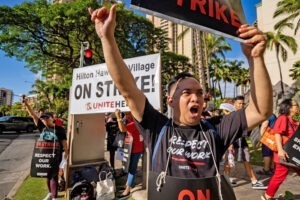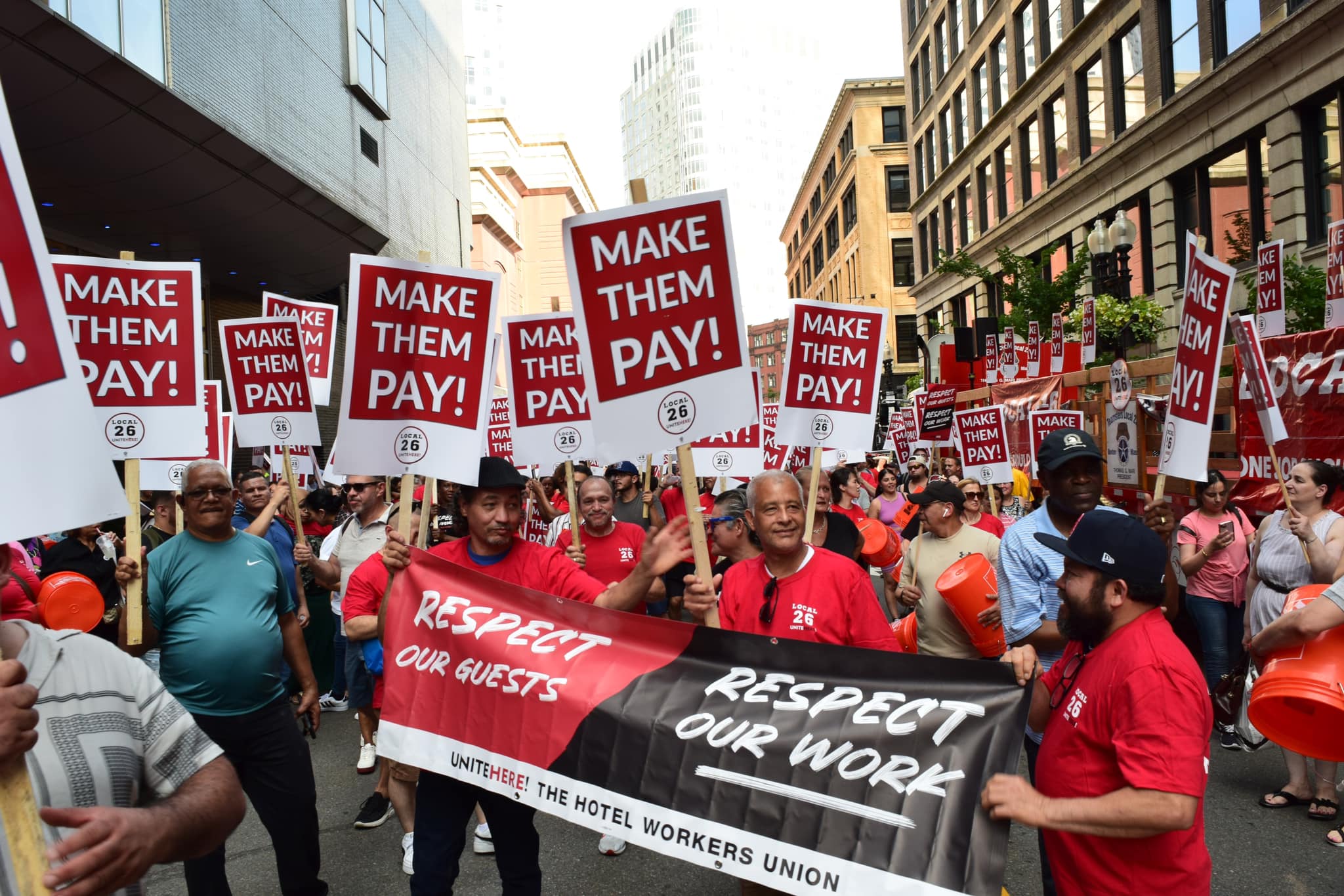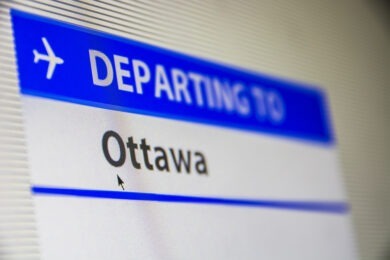It’s always something, as Gilda Radner playing Roseanne Roseannadanna used to moan on “Saturday Night Live.” Meeting professionals can relate. In recent weeks, that “something” is labor strikes in two industries heavily relied on for successful events—hotels and aircraft.
The Situation, in Brief
This week, thousands more hotel workers in the U.S. have gone on strike as talks between the Unite Here labor union and major hotel companies over pandemic-era cuts and pay remain stalled. As many as 40,000 hotel workers could walk off the job by year’s end, affecting up to 22 North American cities.
The strike by some 33,000 Boeing machinists that began in mid-September continues after an initial offer by the company was resoundingly rejected by union members. The strike halted production near Seattle of the 737 Max, Boeing’s best seller, along with the 777 jetliner and a cargo jet.
Hotel Strikes: What to Know

The latest strikers, including servers, bellhops, housekeepers and cooks, left their jobs last weekend in San Francisco at properties branded by Hilton, Marriott and Hyatt. (Strategically, the union waited until the conclusion of Dreamforce, which brought some 45,000 Salesforce customers and others to the city.) Other hotel workers are currently on strike in Honolulu—2,000 at Hilton Hawaiian Village alone, the biggest hotel in the Aloha State—and San Diego. Over Labor Day weekend, about 10,000 hotel workers picketed for three days in a total of 8 U.S. cities.
More strikes could begin with little advance notice across the nation if negotiations remain deadlocked.
“We’re on strike because the hotel industry has gotten off track,” Gwen Mills, international president of Unite Here, said in a statement. “During Covid, everyone suffered, but now the hotel industry is making record profits while workers and guests are left behind. Too many hotels still haven’t restored standard services that guests deserve. Workers aren’t making enough to support their families. Many can no longer afford to live in the cities that they welcome guests to.”
So far, no hotel has ceased operations because of being struck, and a statement from The Westin St. Francis in San Francisco, a Marriott property, is typical: “We have well-established protocols in place to operate our properties and take care of guests in the event of any impact to staffing.” Nonetheless, if previous strikes serve as examples, full services are likely not available, and planners would be well advised to check with their intended hotel beforehand.
Many associations and other organizations have established protocols against crossing union picket lines at meetings and conventions, and Unite Here has asked that tourists and groups support its cause by not staying at hotels on strike. The union also created a website, FairHotel.org, where planners can search for individual properties and check their labor status. For future events, the site also offers “model protective language [to] stay in control of your options by including these key clauses in your event contract.”
The labor action underscores the importance for planners of doing due diligence on issues such as potential labor actions when negotiating contracts with suppliers, Jonathan T. Howe, president and senior founding partner of Howe & Hutton, a Chicago law firm that specializes in the event industry, has noted during past hotel strikes.
“It’s difficult to have a plan B without knowing what will happen to plan A,” Howe said, “but good planners keep themselves up to speed.”
Read More: Labor Pains: How to Manage Union Strikes at Event Venues
Boeing Strike: What to Know
The strike by machinists won’t impact air travel unless it lasts a very long time, according to airline industry experts. Deliveries for new planes are typically spaced out over several years, so the strike won’t cause a plane shortage. In the worst case, carriers might keep flying older planes longer rather than switching to new models.
Experts say the biggest impact will be on Boeing itself, which has a tarnished reputation of late and is already struggling financially. Boeing’s cashflow can be significantly affected because most of the sales price of a new jet is paid after delivery. An eight-week strike in 2008 cost the company about $100 million daily in deferred revenue.
“Boeing needs to keep making these [planes] because Boeing has been hemorrhaging money because of their safety problems,” Art Wheaton, director of labor studies at Cornell University’s School of Industrial and Labor Relations, told the Associated Press. “And safety problems are quite often caused by understaffing.”
Earlier this year, a panel blew out of a Boeing-made jet during an Alaska Airlines flight, and NASA decided not to send two astronauts home from a space station on a problem-plagued Boeing spacecraft.
Observers say the strike could also cause the company, which has lost more than $25 billion in the last six years, to fall farther behind Europe’s Airbus in orders and deliveries of new jetliners.




